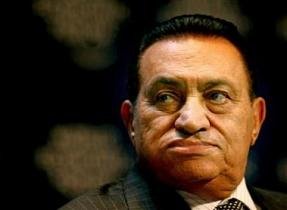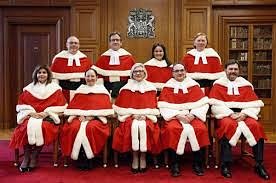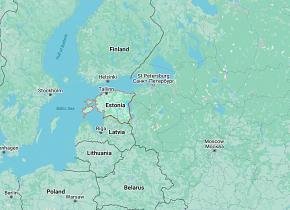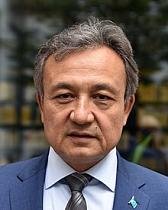Post-Mubarak Parliamentary Poll in Egypt
Post-Mubarak Egypt has through polls held in December-January brought the pro-Islamic Brotherhood party to lead the nation. Islamist parties in Egypt have consolidated their gains in Egypt's parliamentary elections, securing more than 65 per cent of the seats. Based on the announcement, the Muslim Brotherhood says that its Freedom and Justice Party won 86 (47 per cent) of the 180 seats.
Poll took place when the activists were demanding an immediate transfer from military rule to a national salvation government. Everyone expected Islamists to do well in these elections. In this electoral district, there are 96 individual candidates taking part - classed as workers or farmers and professionals - and 17 party lists. For many this is the great achievement of this year's uprising that overthrew President Hosni Mubarak who had been in power for three decades. Local backing for the Muslim Brotherhood - Egypt's most powerful political force - does not seem to have been dented by its insistence that elections should go on.
As predicted, the Muslim Brotherhood's Freedom and Justice Party (FJP) is in the lead with around a third of the votes cast so far. But the Salafist al-Nour Party is not far behind. The Muslim Brotherhood won more than a third of the votes in the last stage of elections for Egypt’s Lower House of Parliament, according to partial results Jan. 6, which show the Islamists are set to dominate the legislature. The Brotherhood’s Freedom and Justice Party list won 37.5 percent of the vote in the third and final stage of voting. The Nour Party list came second in most of the districts after this week’s vote.
The majority of people have voted for the Freedom and Justice party as people predicted. A lot of Heliopolis residents have security concerns. They point out that they have never known a vote free of harassment and violence and that this time the stakes are higher than ever before. "People in Heliopolis think they're good men."
One of the campaigners was keen to stress that his fellow Salafists were not extremists as some have portrayed them. We are honest, we are not hypocrites, we are not liars†"These people are not fanatics - as you can see they are just wearing normal clothes like me," he said. "They are not holding swords in their hands or wearing traditional clothes or riding horses," he added. "We are honest, we are not hypocrites, we are not liars," he said. "We just tell the people what we think and believe. "
In some ways, the Salafists resemble the Muslim Brotherhood in their stress on providing services to the people, not just following Islam. "They won't introduce Islamic punishments and they are not going to beat people who don't pray." But it is also true that the Salafists espouse an uncompromising version of Islam. Several of the leaders have spoken of banning alcohol, and even introducing segregated bathing to Egypt's tourist beaches.
The Islamists put an emphasis on improving healthcare, for example. The Muslim Brotherhood has become a middle-class movement, with a powerbase in the cities. Many poorer Egyptians see them as remote, and perhaps a little too patronizing. The Muslim Brotherhood is trying to portray itself as more moderate and pragmatic. "We are not interfering in the relationship between a person and God," said Amr Darag, an engineer who is its candidate in one west Cairo district. "Islam doesn't force people to adopt a religion, so how can we force people to wear a hijab? Personal freedom is a core of our program. Our intention is to spread values by giving a good model rather than imposition."
The Muslim Brotherhood's more pragmatic supporters know that an outright ban on alcohol could decimate Egypt's vital tourist trade, and further damage the already faltering economy. The Muslim Brotherhood has already allied themselves with several secular parties. And it is by no means certain that the FJP and al-Nour would form a united bloc in parliament. So this election has developed into much more than a straight contest between Islamists and secularists. While the Salafists are united on the issue, the Muslim Brotherhood gives more mixed messages. After years of being neglected by the Egyptian government, the Salafists want politicians who deliver on their promises.
Those are the sort of mundane challenges in social-home needs that will face whoever wins this tortuously drawn-out election.
II - Egypt
Long known for its pyramids and ancient civilization, Egypt is the largest Arab country and has played a central role in Middle Eastern politics in modern times. Egypt's ancient past and the fact that it was one of the first Middle Eastern countries to open up to the West following Napoleon's invasion have given it a claim to be the intellectual and cultural leader in the region. The head of Cairo's Al-Azhar Mosque is one of the highest authorities in Sunni Islam.
In the 1950s President Gamal Abdul Nasser pioneered Arab nationalism and the non-aligned movement, while his successor Anwar Sadat made peace with Israel and turned back to the West. The protests that ousted President Hosni Mubarak in 2011 put Egypt at the crossroads once again. While providing stability and a measure of economic progress, Mubarak's rule was inwardly repressive .An emergency law in force since 1967 - apart from an 18-month interruption in 1981 - muzzled political dissent, and the security forces became renowned for their brutality. Corruption was widespread.
In December 2010, Egyptian President Hosni Mubarak's National Democratic Party (NDP) has won 83% of the seats in the parliamentary election, final results show. The two main opposition parties - the Muslim Brotherhood and Wafd - boycotted second-round vote, alleging widespread fraud in the first ballot. The ruling NDP party secured 420 of parliament's 508 seats, more than 80%, compared with about 70% in the last parliament, figures released by the elections commission showed.
The Muslim Brotherhood and liberal Wafd party had refused to take part in Sunday's run-off after the NDP won 209 out of 211 seats in the first round of voting on 28 November. The results left the Brotherhood, the most powerful opposition force in the outgoing parliament with 20% of the seats, without any MPs in the new assembly.
Hundreds of Brotherhood members were rounded up before the election as part of a clampdown on the group, which has vowed to challenge the results. Meanwhile, rights group Amnesty International said as many as eight people had died in election-related violence. Egyptian rights groups have called for the results to be annulled. The US and the EU have also criticized the conduct of the poll, but Egyptian officials deny any state interference.
Encouraged by the protests that overthrew the long-term leader of Tunisia, mounting popular anger burst to the surface in huge anti-regime demonstrations in January 2011 in Egypt , which eventually led President Mubarak to step aside. He was arrested and put on trial in August 2011 over deaths during the demonstrations. An interim military administration took charge, promising to effect a quick transition to democracy. Under continuing pressure from pro-democracy protesters, a new interim government was formed. In March 2011, a series of constitutional changes paving the way for early elections were approved.
The Muslim Brotherhood has been at pains to stress its commitment to multi-party democracy, inclusiveness and civil liberties, while also advocating the application of sharia law. The Nour Party seeks a strict application of Islamic law and some analysts believe the more moderate Brotherhood may seek an alliance with liberal groups to allay concerns regarding the prospect of an Islamist-led Egypt.
Nevertheless, the prospect of an Islamist-dominated parliament raises fears among pro-west liberals about “freedom†in a country. Western terrocracies that humiliate and terrorize Muslims are eager to protect their religious promotional interests n Egypt and Mideast.
The Islamists now look set to wield major influence over the shape of a new constitution to be drafted by a 100-strong body in the new legislature. Egyptians will now elect an upper house in a further three rounds of polls. Much remains unclear about how the new parliament will function and whether it will be able to resolve a stand-off with the armed forces over how much power they will retain under a new constitution to be written next year. A key demand of the revolutionaries - the lifting of Egypt's emergency law - has not been fulfilled.
Egypt's teeming cities - and almost all agricultural activity - are concentrated along the banks of the Nile, and on the river's delta. Deserts occupy most of the country. The economy depends heavily on agriculture, tourism and cash remittances from Egyptians working abroad, mainly in Saudi Arabia and the Gulf countries.
An Observation
A major development as the direct consequence of the so-called Arab spring is the rise of Islamic parties in political domains and winning parliamentary elections. After Tunisia, now Egypt has also gone the Islamic way which was denied by the pro-US dictatorial regimes in Mideast.
The imperialist West, guided by Zionist fascist ideology, propagates that capitalism is the direct route to democracy. The success of the Brotherhood and Nour Party has alarmed the anti-Islamic Western governments which backed Mubarak.
USA and Europe , both directly addressing the Muslim nations and through media gimmicks, recommend the Muslim nations to follow the western cultural heritage in crimes and promote corrupt criminalized democracy instead of Islam which, they argue, only promotes terrorism.
The Islamist group, now the ruling party, was officially banned in Egypt for over 50 years, but was recently legalized and allowed to set up its own party called Freedom and Justice. Previously, its members did well as independent candidates running in this constituency.
Poll result shows that the Egyptians hold distinctly negative views of the United States and its president. While many American leaders see a "moment of promise" in the popular “uprising†in Egypt, the concern of the potential rise of a regime that is more hostile to the USA is damaging for the regime’s prestige.
The result also indicates the anger of Arabs against dictatorial attitude of America towards less powerful and weak nations. Egypt’s anti-America mindset is common in the region, notwithstanding the pro-US autocratic regimes, and is more or less equally prompted by the Israeli crimes against humanity.
The CIA goal of making Obama the hero in Mideast after the Bushdom crimes has not yielded any fruit because Obama has also proved to b e the other side of Bushdom roguism. The poll outcome show that Egyptians express somewhat same antipathy and non-confidence in President Obama as they did President Bush. Obama's numbers fell dramatically over the last year and post-Qaddafi era has seen a total anti-American and anti-Israeli Egypt.
The western media strategist gimmick of bluffing about "the rise of Islamic extremism" has very little impact on the people who are able to a see through the anti-Islamic agenda of NATO terror syndicate as well as notorious UNSC under the guidance of the USA-UK terror w twins. Even more the Egyptians disapprove of Obama's handling of the situations in Afghanistan (81 percent), Iran (86 percent) and the Israeli-Palestinian conflict (98 percent).
Many in the USA are sceptical of the new mild-mannered image being put forward by the Muslim Brotherhood. But so far, secular and liberal parties are running a poor third in the election. The new parliament looks naturally set to be dominated by Islamists. However, the new dynamics of Egyptian politics are not that simple.
West wants Muslim nations to promote liquor on a large scale so that they could import more and more and people can see liquor flowing freely even inside Mosques. As so often in the Muslim World, the issue of banning alcohol could become a litmus test.
Egyptians, as people elsewhere, are hoping that the poll will lead to greater stability. However, rapid population growth and the limited amount of arable land is straining the country's resources and economy.
No need for fear about Islam. Islam has come to upbring the humans. But the anti-Islamic forces paint Islam and Muslim in dirty colors even by employing some hypocritical Muslims. The successful engineering of the Sept-11 hoax in USA and other similar terror gimmicks in India , UK Russia and elsewhere are bound to fail and world will know the whole truth about all state terrorists in democracy garbs.
Meanwhile, the man concern of Unilateral USA and its terror allies like Israel and UK is emerging policy towards Zionism to make the new regime in Cairo a 100%Israel as it was dung the Mubarak era. The White House hawks, influencing the Obama decisions, claim that they have impressed upon the ruling party the need to Muslim Brotherhood “respect†the bogus 1979 peace accord with Israel.
However, there is going to be 100% pro-Palestine policy in Cairo whether the USA-Israel terror twins like it or not. Already the shift in p Egyptian policy has taken roots in the post-Mubarak military rule.
About the writers:
Dr. Abdul Ruff, Specialist on State Terrorism; Educationalist; Chancellor-Founder of Centor for International Affairs (CIA); Independent Analyst; Chronicler of Foreign occupations & Freedom movements (Palestine, Kashmir, Iraq, Afghanistan, Pakistan, Xinjiang, Chechnya, etc); Anti-Muslimism and anti-Islamism are more dangerous than "terrorism" Anti-Islamic forces & terrorists are using criminal elements for terrorizing the world and they in disguise are harming genuine interests of ordinary Muslims. Global media today, even in Muslim nations, are controlled by CIA & other anti-Islamic agencies. Former university Teacher. Website: http://abdulruff.wordpress.com.
Comments
There are 0 comments on this post














